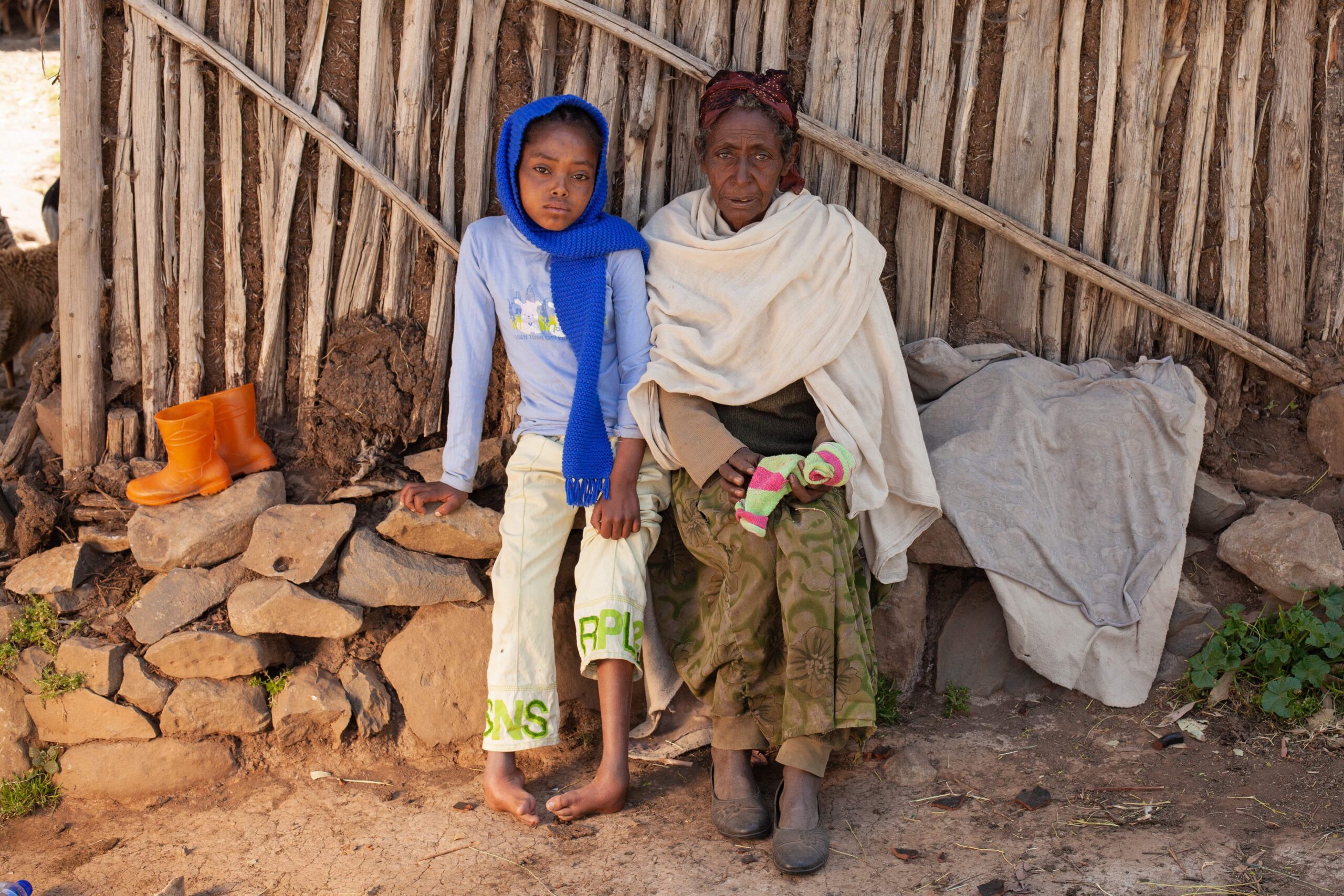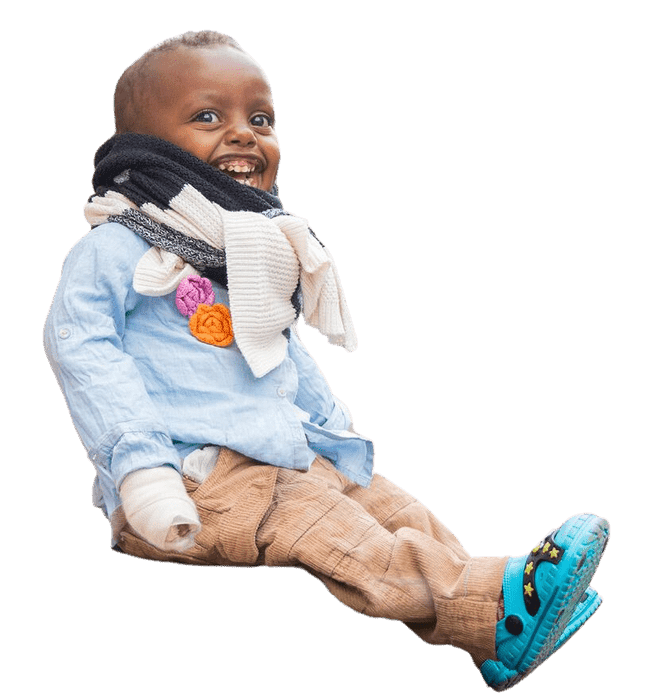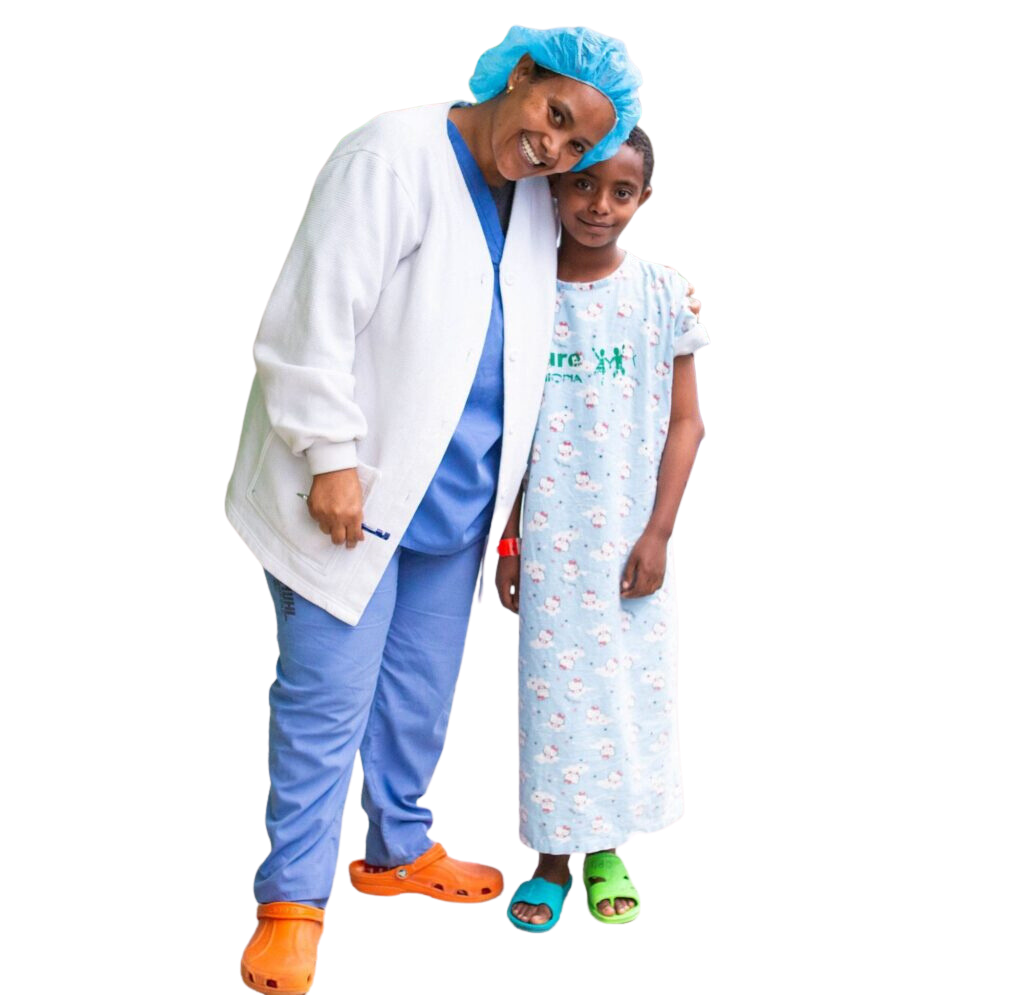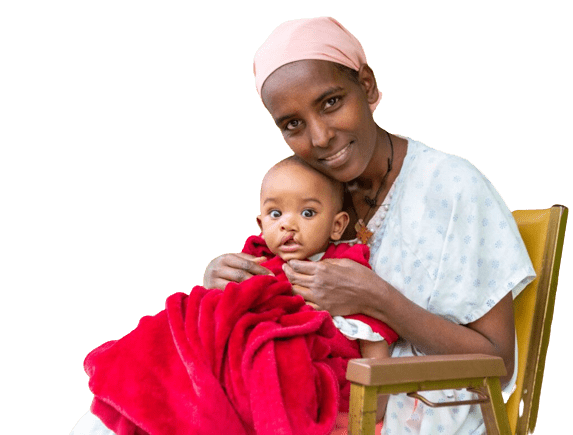Megertu, now twenty years old, was born with clubfoot. It is a common congenital condition in which a baby’s foot points inward and downward. Megertu had the impairment in both feet.
There is a high success rate for clubfoot correction, especially when treatment starts early, ideally shortly after the baby’s birth. But when the condition is left untreated, it can lead to immobility, significantly affecting a child’s quality of life. Sadly, access to essential health services is most lacking in places where it is needed most.
Such is the case with Megertu who was born in a remote farming village in Ethiopia where access to quality health care is scarce, and, if available, is not affordable to most families. Add to this the prevailing belief that children born with disabilities are an embarrassment, a burden, and a curse from God. As a result, they face a greater risk of abandonment, violence, and discrimination.
All of these contributed to Megertu not getting the help that she needed early on in her life. Soon, her family started to resent her because she had become a liability — just another mouth to feed in a household already buried in deep poverty. In Megertu’s village, children are expected to help with farm work, but because her feet would hurt from walking, she couldn’t watch the cattle closely. At one point, her uncle gave her a beating for failing to run after some animals that got out of control.
Change is coming
But life, as Megertu knew it, was about to change. When she was eight years old, her mother died, leaving her completely in the care of her grandmother. It was Megertu’s grandmother who advocated for treatment after she learned from Alemachin, a partner organization of CURE Ethiopia, that clubfoot could be corrected.
“Out of all the people in the community, my grandmother was the only one brave enough to bring me to CURE,” says Megertu.
Where Megertu grew up, people have misgivings about seeking medical help. Cost is a primary factor, but in addition, they believe that it’s better to live with a disability than go to a hospital and risk ending up in far worse condition.
But Megertu’s grandmother cared enough to challenge her community’s traditional beliefs. And her courage eventually persuaded parents in the community to register their children for diagnosis and treatment – and many more did so as they witnessed Megertu’s progress and healing.
Coming to CURE
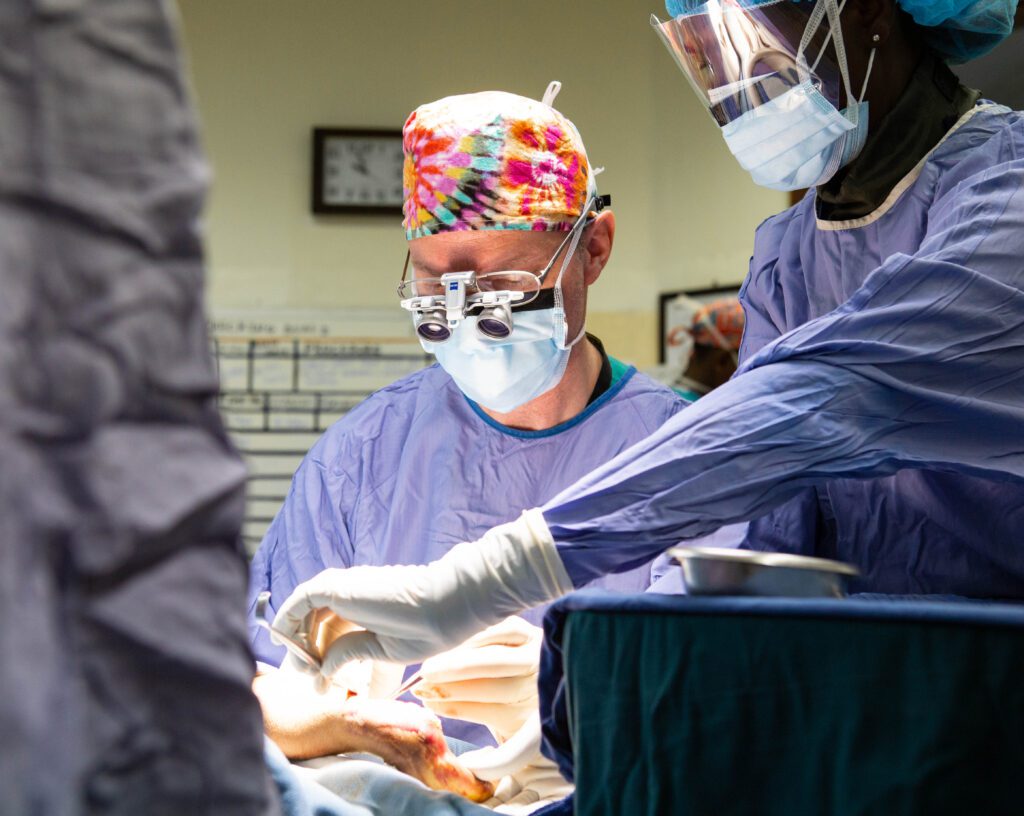
Megertu was ten years old when she took a trip to Addis Ababa and set foot in CURE Ethiopia Children’s Hospital for the first time. Immediately, CURE surgeons established a treatment plan for her that included an Achilles tendon lengthening procedure, a midfoot osteotomy, and a lift triple arthrodesis surgery.
Over the course of six years, Megertu bravely and expectantly went through every surgical correction, follow-up care and treatment, and hospital stay, which at times lasted for months. In fact, she learned to speak Amharic – a language more commonly spoken in northern Ethiopia – during her three-month stay at CURE. As a result, Megertu became a translator for patients who spoke Oromiffa, another language native to Ethiopia’s region of Oromia.
Finally, in January 2018, Dr. Tim Nunn, the medical director at CURE Ethiopia, gave Megertu a clean bill of health after a final checkup of her feet.
More than an Overcomer
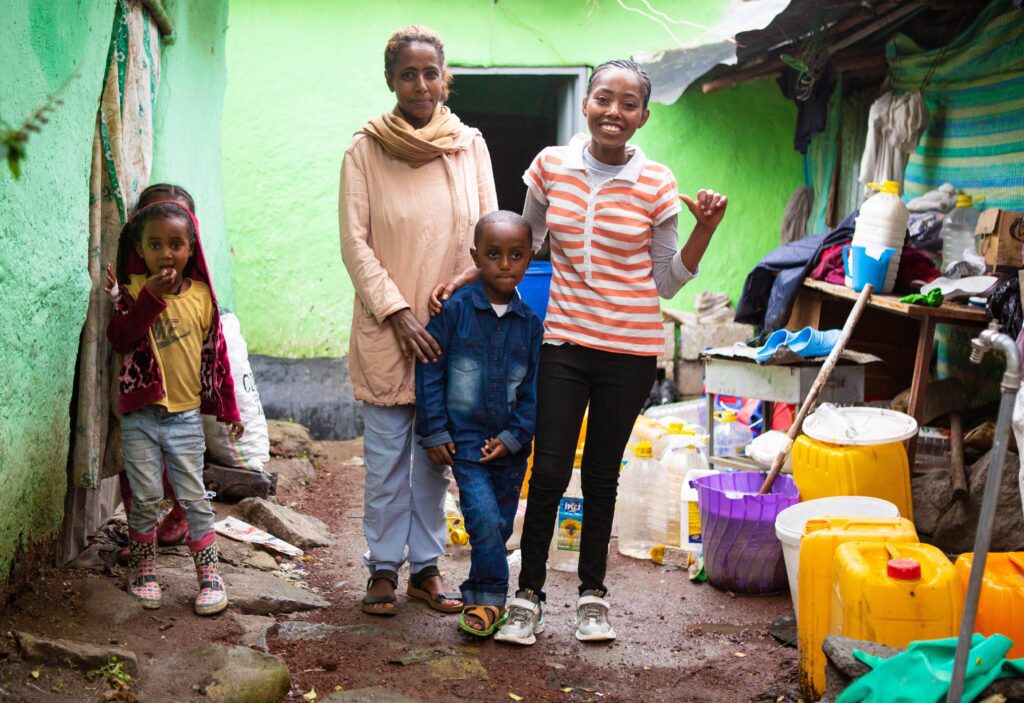
“God gave me everything I ever wanted.”
Today, with surgeries and hospital visits behind her, Megertu is back in school as a tenth grader. She lives in Addis Ababa with her aunt, Aynalem, who became her caregiver when Megertu’s grandmother died. Although a devastating event for the family, Aynalem assures, “She witnessed Megertu’s healing, so she passed away without regrets.”
Occasionally, Megertu remembers her painful early childhood years, but now that she can walk on her own without difficulty, she says she realized “God gave me everything I have ever wanted.”
“The children at my new school don’t even know that I had a disability because I can walk up the stairs just like them,” Megertu says with a big smile.
Seeing how Megertu has blossomed into a vibrant young woman, Aynahem says she is now “very empathetic” to people with disabilities because they remind her of how much Megertu struggled. “CURE is God’s gift to Megertu,” she says.
Megertu brims with joy as she recalls being valued and loved by the staff at CURE Ethiopia. She says she came to CURE feeling worthless but left with a “self-esteem that is at an all-time high.”
“I believe that CURE opened the door for me to have a productive, independent life,” Megertu shares. “Furthermore, I came to know Christ and I learned that I could overcome.”
About the CURE Children’s Hospital of Ethiopia
Established in 2008, CURE Ethiopia performs over 2,500 life-changing reconstructive and orthopedic surgeries every year for children suffering from treatable disabilities. Strategically located in the capital city of Addis Ababa, the teaching hospital has 70 beds and four operating rooms. CURE International uses this facility to multiply its efforts by partnering with The College of Surgeons of East, Central, and Southern Africa (COSECSA) to serve as a regional learning institution by implementing an orthopedic pediatric training program at the residency and fellowship levels. In addition to world-class clinical service, CURE Ethiopia ministers to the emotional and spiritual needs of patients and their communities.
